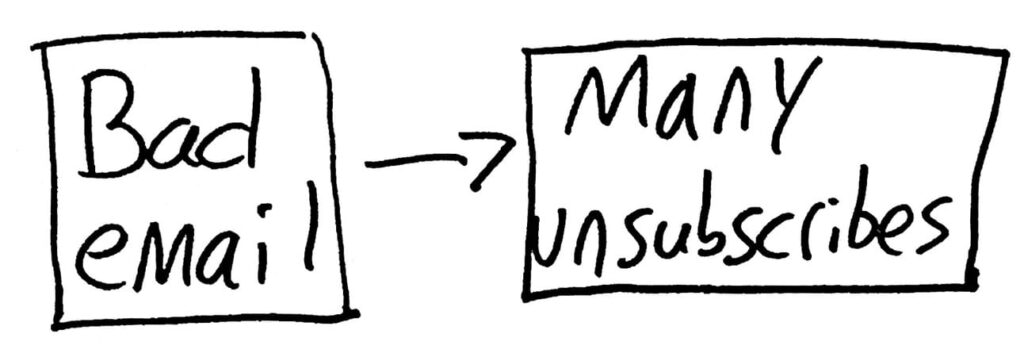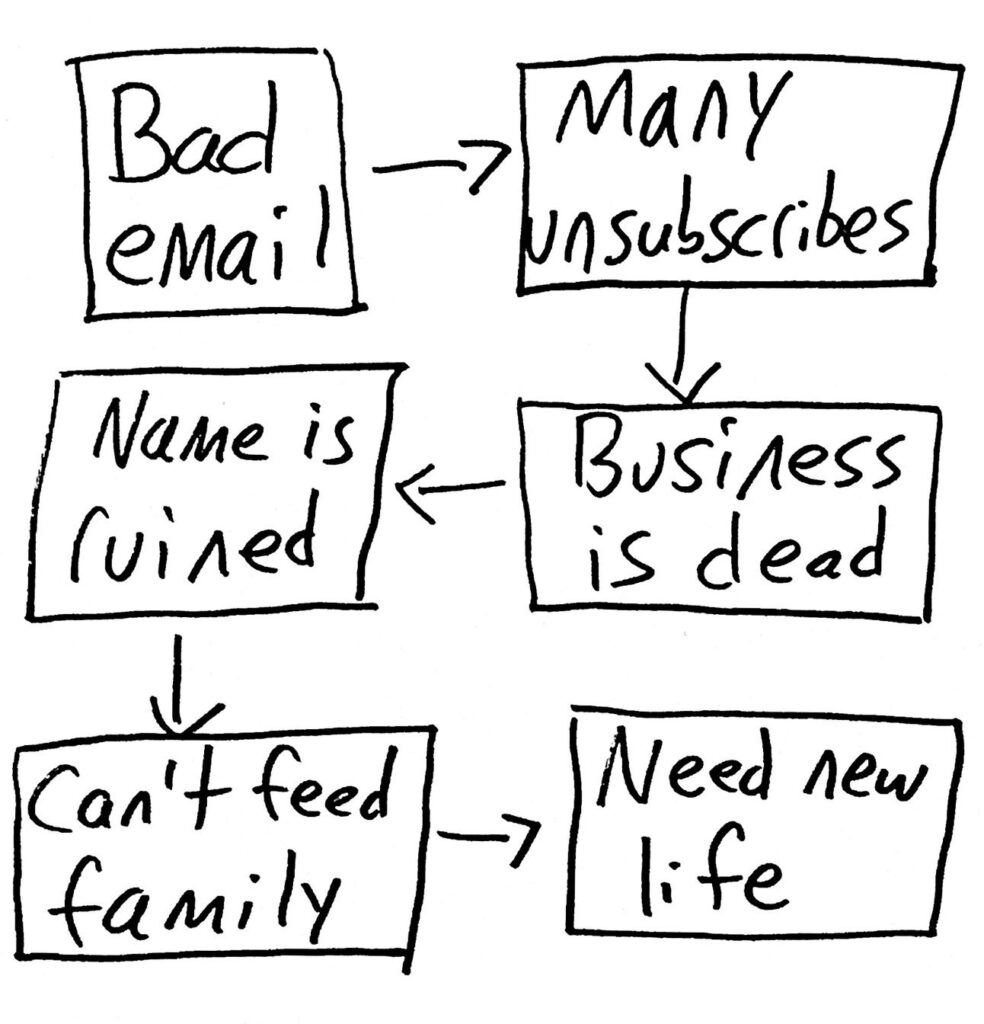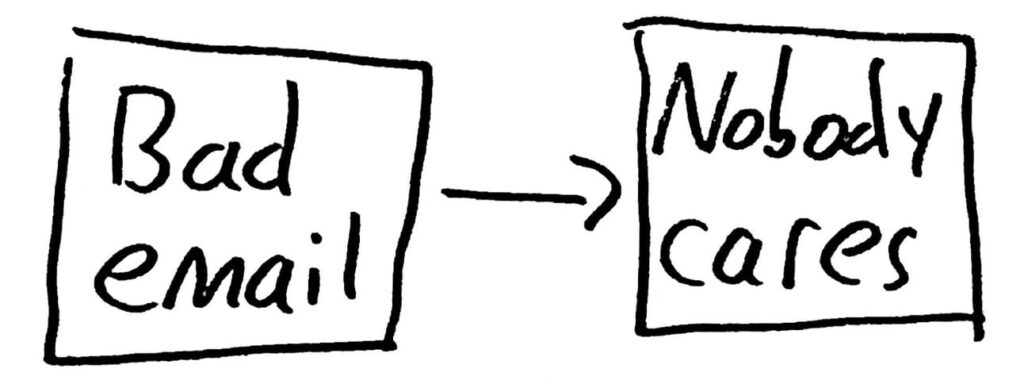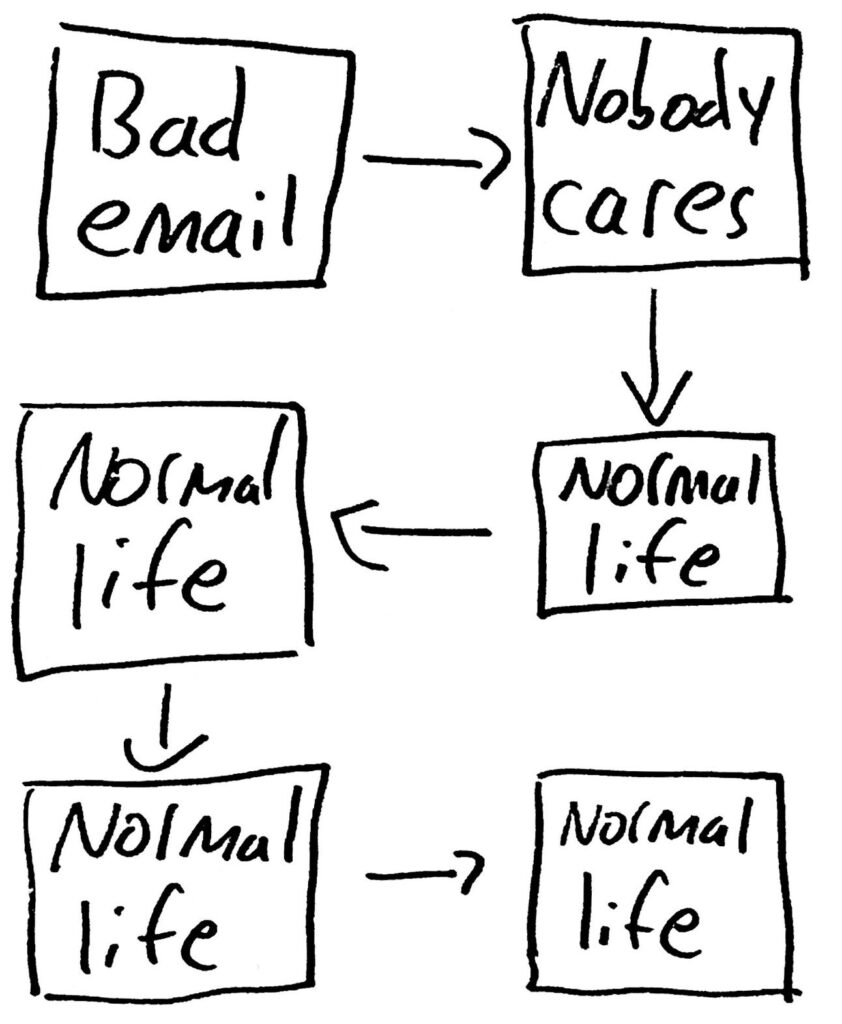Welcome to One Thing Better. Each week, the editor in chief of Entrepreneur magazine (that’s me) shares one way to level up — and build a career or company you love.
Today’s one thing: Worrying what everyone will think.
That one thing, better: Realizing what they really think.

You slipped up.
You said the wrong thing. Wrote the wrong thing. Made the wrong call. Whatever. Now you can’t let go, replaying the moment over and over.
Today, I’m going to help you stop obsessing.
How? By digging down to the root of the problem — which isn’t your mistake! The real problem is what you think will happen next.
And to appreciate this, let me tell you about my friend Paul… and how he screwed up recently.
A mistake seen by thousands
Paul Kix is an old friend who teaches writing. A few weeks ago, he wrote an email that was meant for his latest cohort of students.
Instead, he accidentally sent it out to everyone on his email list — many thousands of people.
Paul panicked. Would people be annoyed? Furious?
Then he did something even worse: He extrapolated.
Now, hold up. Before we find a solution to our worries, we must spend a moment understanding this extrapolation. Because in my view, this is how we make our worries worse.
It’s also the real problem we must solve.
Death by extrapolation!
Let’s start mapping out Paul’s thoughts.
They began simply. He sent out a bad email, and, as a result, he worried about a bad outcome: People would be upset, then they’d unsubscribe.

But Paul’s not going to stop there. Why? Because that’s not how human brains work.
We don’t just think: Oh, that happened.
No. In any situation, good or bad, we extrapolate based on what we know. We think: Because this happened, that will happen next, and then that will happen next…
This is a useful skill. It helps us strategize and foresee consequences. But it can also backfire — because when we panic, we imagine the worst possible outcome, and then extrapolate based on that.
For example, Paul was convinced people would unsubscribe. So then he starts thinking: Well, what happens next?
It feels like a logical question. One negative outcome leads to another negative outcome. Each feels certain. Bigger.
Here’s what it could look like:

I’m not saying Paul thought exactly that, but I’m sure you can relate to the spiraling panic. A bad email wipes away his list, which he spent years building. Now nobody’s joining his courses. His reputation is dead. He can’t support his family. He needs a total refresh.
This is the cycle we need to stop — where fear becomes certainty, and leads to more fear. But I have good news: This cycle is also the thing that’s most in our control.
After all, we can’t undo our mistake. It’s already done! But we can change how we react to it.
And we’ll do this with one simple truth:
Nobody cares.
That’s what Paul discovered after his email debacle.
He sent the bad email. He waited for the consequences. And then, as he later wrote, one of two things happened: Some people opened the email, and some people ignored it.
And… that was it.
He drew a lesson from this. Here’s Paul:
No one pays attention to me. I mean this in a good way. Because no one pays attention to you either. Not really.
Instead we all, each of us, focus on our concerns throughout our day because our perspective is all we know.
When we mess up, we notice. We think about it a lot. Because it’s our mess. Our action.
But other people are focused on themselves too. They’re not sitting around thinking about us! Fine, maybe they noticed our screw-up — but then they moved on. (I mean, unless it was a really epic awful screw-up. But most things are not that.)
Here’s a fun exercise, the next time you mess up:
Try to remember the last time someone you know messed up in a similar way.
For example, did you say something awkward in a conversation, and now you’re beating yourself up over it? Try to remember the last time someone else said something awkward in a conversation.
My bet: You can’t. Because you don’t care about someone else’s screw-up. And if you don’t care, then you don’t remember it. Which means they almost certainly don’t care about or remember yours.
Now let’s draw a different map.
At the beginning of this email, I said your mistake is not the root of your problem. It’s true — because mistakes happen, and that’s life.
The root of the problem is what happens next: It’s the beginning of the extrapolation.
So what happens if we replace the first bad outcome with… nothing? Like this:

Paul sent a bad email. As a result, nobody cares.
OK. Well. We can extrapolate out from there, right? What happens next?
This does:

Life goes on.
When you remove the first domino, no other dominos fall.
When you stop imagining the worst, it doesn’t get worse.
I’m not saying this is easy. I obsess too. I said a dumb thing in a meeting. I gave a bad answer during a Q&A session. Could my newsletter have been smarter? Maybe I should have written X instead of Y. Maybe people will hate it. They’ll tell their friends I’m stupid. They’ll…
And that’s when I stop and tell myself another story: Maybe they noticed. But they won’t remember.
So what do they remember? They remember how you help them. How you care for them. How you show up for them. They remember what you usually do, not the outliers. Which is to say — they remember what happens when you stop obsessing over worst-case scenarios and put that energy towards doing the things that are truly worth remembering.
That’s how to do one thing better.
